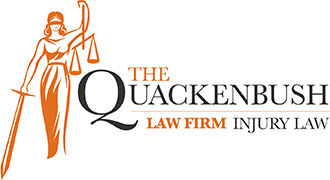Miami Post-Operative Respiratory Failure Attorney
This Miami Post-Operative Respiratory Failure Attorney Helps People with Breathing Issues

Anthony Quackenbush is a Miami Post-Operative Respiratory Failure Lawyer who assists people having breathing issues. Post-operative respiratory failure is a condition which results after you’ve had surgery. It is characterized by an inability to breathe properly, and results in the body’s inability to oxygenate itself and expel carbon monoxide.
Respiratory failure frequently results after a surgery. It is for this reason that it is important to properly monitor a patient after an operation.
Post-operative respiratory failure is related to the following conditions:
- aspiration
- adult respiratory distress syndrome
- pulmonary embolism.
The following procedures tend to carry higher risks of post-surgical respiratory failure:
- coronary artery bypass surgery
- surgery involving the head
- surgery involving the neck
- thoracic surgery
If you’ve experienced respiratory failure after a surgical procedure that happened anywhere in Florida (including Broward County, Fort Lauderdale, West Palm Beach and Palm Beach County), call Mr. Quackenbush today. This Miami Post-Operative Respiratory Failure Law Firm fights hard for clients. Mr. Quackenbush can be reached at 954-448-7288 and will speak to you about your case at no charge.
People Experiencing Breathing Issues can Rely on this Miami Post-Operative Respiratory Failure Lawyer
During a surgical procedure, an anesthesiologist will typically be called in to control the consciousness of the patient. That is, this doctor will typically administer anesthesia (a drug designed to “put the patient under.” When the procedure is over, the anesthesiologist will typically bring the patient back to a state of consciousness.
Nevertheless, some people are allergic to some of the anesthesia drugs typically used. As such, if these patients are administered anesthesia, they may have an allergic reaction. This reaction can include post-procedure respiratory failure/distress. If this occurred to you, you might be able to pursue a medical malpractice case against the anesthesiologist who administered your anesthesia. After all, anesthesiologists are expected to check to see if their patients are allergic to anesthesia before administering the drug.
Some patients go into surgery already having breathing problems. For example, many patients with asthma require surgery on other body parts. A surgeon should always know if his or her patients have breathing problems before operating. The surgeon should find this out either by interviewing the patient or by looking through his or her medical records.
If the surgeon doesn’t know that his or her patient has breathing problems (or knows and does the surgery anyway), he or she may be liable for any negative results. A surgeon who knows that his or her patient has breathing problems should take precautions for the surgery. If the surgeon doesn’t do this, then he or she may be liable if catastrophic results ensue.
Just like pre-existing breathing issues, obesity can make a patient high risk for post-operative breathing issues. Therefore, if a surgeon intends to operate on an overweight person, then the surgeon should take precautions to make the surgery safe. If you are overweight and developed post-surgical respiratory distress after an operation, then you may have a medical malpractice case against the doctor that performed the surgery.
A history of smoking also makes a surgery patient high-risk for post-operative respiratory distress. Again, a surgeon should know if his patients are smokers (either from medical records or from interviewing the patient/intake forms). If the surgeon either 1) isn’t aware of this or 2) is aware but recklessly does the procedure anyway, then he or she may be liable for the consequences.
This South Florida Post-Surgical Respiratory Failure Attorney Gives Advice to People with Breathing Issues
Respiratory distress may include the following symptoms:
- low blood-oxygen levels
- shortness of breath
- disorientation
- confusion
- increased heart rate
- decreased heart rate
- bluish colored skin
- loss of consciousness
- coma
A pulmonary embolism can cause many of the symptoms above as well.
After a surgical procedure, it is the surgeon’s job to monitor the patient for the above symptoms. A surgeon should know that these symptoms can be signs of post-procedure respiratory distress. A patient, on the other hand, might not be aware of these things. It is therefore incumbent on the surgeon to monitor the patient. If any of the symptoms arise, the surgeon must give immediate care to the patient.
The surgeon can properly monitor the patient either by 1) keeping the patient in the hospital until it’s safe to discharge or 2) following up with the patient after discharge. Many patients are improperly discharged by hospitals for financial reasons. The hospital wants to get the next patient in so that bills continue to accrue.
Similarly, many doctors don’t properly monitor their patients after surgeries because it doesn’t pay as much as operating on new patients. If you were the victim of one of these types of doctors and hospitals, you may be able to pursue a medical malpractice case. If Mr. Quackenbush is able to prove that you weren’t properly monitored for financial reasons (either through documentary evidence or through testimony of medical personnel), then he will use this to get you adequate compensation.
At the same time, once you’ve been discharged, doctors have the responsibility of setting follow-up appointments to monitor you status. If the doctor doesn’t do this and you developed post-operative respiratory distress as a result, you may be able to pursue a medical malpractice case against the doctor.
Call this Miami-Dade County Post-Operative Respiratory Distress Law Firm
Reach out to Mr. Quackenbush if you’ve developed post-operative respiratory failure anywhere in Miami-Dade County (including Aventura, Coral Gables, Cutler Bay, Doral, Florida City, Hialeah, Hialeah Gardens, Homestead, Key Biscayne, Miami Beach, Miami Gardens, Miami Lakes, North Miami, North Miami Beach, Opa-Locka, Palmetto Bay, Pinecrest, South Miami, and Sunny Isles Beach). He can be reached at 954-448-7288, and he will talk to you about your case for free.













